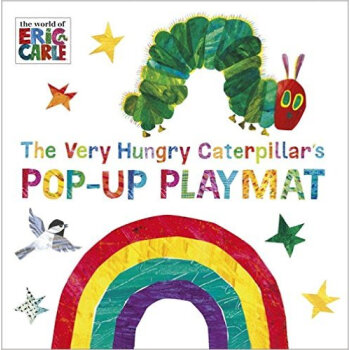![The Scarlet Letter红字 英文原版 [平装] [NA--NA]](https://pic.windowsfront.com/19017117/rBEhWlIwFKYIAAAAAADWULJfSLEAADCXwDQaO8AANZo505.jpg)

具体描述
编辑推荐
适读人群 :NA--NA《红字》以两百多年前的殖民地时代的美洲为题材,但揭露的却是19世纪资本主义发展时代美国社会法典的残酷、宗教的欺骗和道德的虚伪。小说惯用象征手法,人物、情节和语言都颇具主观想象色彩,在描写中又常把人的心理活动和直觉放在首位。因此,它不仅是美国浪漫主义小说的代表作,同时也被称作是美国心理分析小说的开创篇。
内容简介
Hailed by Henry James as "the finest piece of imaginative writing yet put forth in the country," Nathaniel Hawthorne's The Scarlet Letter reaches to our nation's historical and moral roots for the material of great tragedy. Set in an early New England colony, the novel shows the terrible impact a single, passionate act has on the lives of three members of the community: the defiant Hester Prynne; the fiery, tortured Reverend Dimmesdale; and the obsessed, vengeful Chillingworth.With The Scarlet Letter, Hawthorne became the first American novelist to forge from our Puritan heritage a universal classic, a masterful exploration of humanity's unending struggle with sin, guilt and pride.
《红字》讲述的是一出发生在北美殖民时期的恋爱悲剧。女主人公海丝特·白兰嫁给了医生奇灵渥斯,他们之间却没有爱情。在孤独中白兰与牧师丁梅斯代尔相恋并生下女儿珠儿。白兰被当众惩罚,戴上标志“通奸”的红色A字示众。然而白兰坚贞不屈,拒不说出孩子的父亲。白兰的丈夫从英国来到北美,目睹了白兰受罚的一幕,遂决定找出孩子的父亲,进行报复。当时,丁梅斯代尔由于其出色的工作倍受当地居民的爱戴,只是他在沉重的良心债务压榨下身体日渐衰颓。人民于是安排奇灵渥斯与牧师合住以治疗他的病。白兰由于有愧于丈夫,因此答应了奇灵渥斯不公开他们之间的合法夫妻关系。于是一场残忍的复仇行动展开了。 最终丁梅斯代尔不堪良心的遣责,公开认罪,死在了白兰的怀里。奇灵渥斯却沦为魔鬼的奴隶,成为真正的罪人。
作者简介
Hawthorne was a novelist and short-story writer, born in Salem, MA. Educated at Bowdon College, he shut himself away for 12 years to learn to write fiction. His first major success was the novel The Scarlet Letter (1850), still the best known of his works. Other books include The House of the Seven Gables (1851), The Snow Image (1852), and a campaign biography of his old schoolfriend, President Franklin Pierce, on whose inauguration Hawthorne became consul at Liverpool (1853--7). Only belatedly recognized in his own country, he continued to write articles and stories, notably those for the Atlantic Monthly, collected as Our Old Home.
纳撒尼尔·霍桑(1804-1864),美国作家,十九世纪后期美国浪漫主义文学的重要代表。其代表作《红字》一经问世便引起巨大轰动,时至今日仍是不朽的经典。
《红字》描写了二百多年以前发生在新英格兰殖民时期一个浪漫的爱情悲剧。小说以深邃的主题,以象征、隐喻等艺术手法形成独特的风格,对美国文学史上一批卓有成就的作家如梅尔维尔、海明威、菲茨杰拉德、福克纳等都产生过影响。
精彩书评
Up Nathaniel Hawthorne's classic novel of Puritanism giving rise to twisted gender politics, hypocrisy, and strength of character in the face of public scorn is well realized in this reading by Annie Wauters. She gives individual tone and rhythm to each of the main characters, while keeping the passages of narrative relatively uninflected. While this suits the author's own sometimes dry writing, it means that listeners must get to the second hour before the story truly gets underway. Since this lengthy forepart fits almost entirely onto the first disk, and each chapter is clearly marked as to track number on the packaging, it is possible to simply skip ahead rather than give up what becomes a delightfully lively listening experience once the romance gets going. Because the reading adheres so entirely to the print in spirit as well as in word, this is an excellent choice for students who cannot access print or who would like to accomplish college prep reading while undertaking other activities. Sturdy packaging makes this a shelf ready purchase.--Francisca Goldsmith, Berkeley Public Library, CA
"[Nathaniel Hawthorne] recaptured, for his New England, the essence of Greek tragedy."
--Malcolm Cowley
精彩书摘
Chapter 1The Prison-Door
A throng of bearded men, in sad-colored garments, and gray, steeple-crowned hats, intermixed with women, some wearing hoods and others bareheaded, was assembled in front of a wooden edifice, the door of which was heavily timbered with oak, and studded with iron spikes.
The founders of a new colony, whatever Utopia of human virtue and happiness they might originally project, have invariably recognized it among their earliest practical necessities to allot a portion of the virgin soil as a cemetery, and another portion as the site of a prison. In accordance with this rule, it may safely be assumed that the forefathers of Boston had built the first prison-house somewhere in the vicinity of Cornhill, almost as seasonably as they marked out the first burial-ground, on Isaac Johnson's lot, and round about his grave, which subsequently became the nucleus of all the congregated sepulchres in the old churchyard of King's Chapel. Certain it is, that, some fifteen or twenty years after the settlement of the town, the wooden jail was already marked with weather-stains and other indications of age, which gave a yet darker aspect to its beetle-browed and gloomy front. The rust on the ponderous iron-work of its oaken door looked more antique than anything else in the New World. Like all that pertains to crime, it seemed never to have known a youthful era. Before this ugly edifice, and between it and the wheel-track of the street, was a grass-plot, much overgrown with burdock, pigweed, apple-peru, and such unsightly vegetation, which evidently found something congenial in the soil that had so early borne the black flower of civilized society, a prison. But, on one side of the portal, and rooted almost at the threshold, was a wild rose-bush, covered, in this month of June, with its delicate gems, which might be imagined to offer their fragrance and fragile beauty to the prisoner as he went in, and to the condemned criminal as he came forth to his doom, in token that the deep heart of Nature could pity and be kind to him.
This rose-bush, by a strange chance, has been kept alive in history; but whether it had merely survived out of the stern old wilderness, so long after the fall of the gigantic pines and oaks that originally over-shadowed it,-or whether, as there is fair authority for believing, it had sprung up under the footsteps of the sainted Anne Hutchinson, as she entered the prison-door,-we shall not take upon us to determine. Finding it so directly on the threshold of our narrative, which is now about to issue from that inauspicious portal, we could hardly do otherwise than pluck one of its flowers, and present it to the reader. It may serve, let us hope, to symbolize some sweet moral blossom, that may be found along the track, or relieve the darkening close of a tale of human frailty and sorrow.
Chapter 2
The Market-Place
The grass-plot before the jail, in Prison Lane, on a certain summer morning, not less than two centuries ago, was occupied by a pretty large number of the inhabitants of Boston, all with their eyes intently fastened on the iron-clamped oaken door. Amongst any other population, or at a later period in the history of New England, the grim rigidity that petrified the bearded physiognomies of these good people would have augured some awful business in hand. It could have betokened nothing short of the anticipated execution of some noted culprit, on whom the sentence of a legal tribunal had but confirmed the verdict of public sentiment. But, in that early severity of the Puritan character, an inference of this kind could not so indubitably be drawn. It might be that a sluggish bond-servant, or an undutiful child, whom his parents had given over to the civil authority, was to be corrected at the whipping-post. It might be, that an Antinomian, a Quaker, or other heterodox religionist was to be scourged out of the town, or an idle and vagrant Indian, whom the white man's fire-water had made riotous about the streets, was to be driven with stripes into the shadow of the forest. It might be, too, that a witch, like old Mistress Hibbins, the bitter-tempered widow of the magistrate, was to die upon the gallows. In either case, there was very much the same solemnity of demeanor on the part of the spectators; as befitted a people amongst whom religion and law were almost identical, and in whose character both were so thoroughly interfused, that the mildest and the severest acts of public discipline were alike made venerable and awful. Meagre, indeed, and cold was the sympathy that a transgressor might look for from such by-standers, at the scaffold. On the other hand, a penalty, which, in our days, would infer a degree of mocking infamy and ridicule, might then be invested with almost as stern a dignity as the punishment of death itself.
It was a circumstance to be noted, on the summer morning when our story begins its course, that the women, of whom there were several in the crowd, appeared to take a peculiar interest in whatever penal infliction might be expected to ensue. The age had not so much refinement, that any sense of impropriety restrained the wearers of petticoat and farthingale from stepping forth into the public ways, and wedging their not unsubstantial persons, if occasion were, into the throng nearest to the scaffold at an execution. Morally, as well as materially, there was a coarser fibre in those wives and maidens of old English birth and breeding, than in their fair descendants, separated from them by a series of six or seven generations; for, throughout that chain of ancestry, every successive mother has transmitted to her child a fainter bloom, a more delicate and briefer beauty, and a slighter physical frame, if not a character of less force and solidity, than her own. The women who were now standing about the prison-door stood within less than half a century of the period when the man-like Elizabeth1 had been the not altogether unsuitable representative of the sex. They were her countrywomen; and the beef and ale of their native land, with a moral diet not a whit more refined, entered largely into their composition. The bright morning sun, therefore, shone on broad shoulders and well-developed busts, and on round and ruddy cheeks, that had ripened in the far-off island, and had hardly yet grown paler or thinner in the atmosphere of New England. There was, moreover, a boldness and rotundity of speech among these matrons, as most of them seemed to be, that would startle us at the present day, whether in respect to its purport or its volume of tone.
"Goodwives," said a hard-featured dame of fifty, "I'll tell ye a
piece of my mind. It would be greatly for the public behoof, if we women, being of mature age and church-members in good repute, should have the handling of such malefactresses as this Hester Prynne. What think ye, gossips? If the hussy stood up for judgment before us five, that are now here in a knot together, would she come off with such a sentence as the worshipful magistrates have awarded? Marry, I trow not!"
"People say," said another, "that the Reverend Master Dimmesdale, her godly pastor, takes it very grievously to heart that such a scandal should have come upon his congregation."
"The magistrates are God-fearing gentlemen, but merciful overmuch,--that is a truth," added a third autumnal matron. "At the very least, they should have put the brand of a hot iron on Hester Prynne's forehead. Madam Hester would have winced at that, I warrant me. But she,-the naughty baggage,-little will she care what they put upon the bodice of her gown! Why, look you, she may cover it with a brooch, or such like heathenish adornment, and so walk the streets as brave as ever!"
"Ah, but," interposed, more softly, a young wife, holding a child by the hand, "let her cover the mark as she will, the pang of it will be always in her heart."
"What do we talk of marks and brands, whether on the bodice of her gown, or the flesh of her forehead?" cried another female, the ugliest as well as the most pitiless of these self-constituted judges. "This woman has brought shame upon us all, and ought to die. Is there not law for it? Truly, there is, both in the Scripture and the statute-book. Then let the magistrates, who have made it of no effect, thank themselves if their own wives and daughters go astray!"
"Mercy on us, goodwife," exclaimed a man in the crowd, "is there no virtue in woman, save what springs from a wholesome fear of the gallows? That is the hardest word yet! Hush, now, gossips! for the lock is turning in the prison-door, and here comes Mistress Prynne herself."
The door of the jail being flung open from within, there appeared, in the first place, like a black shadow emerging into sunshine, the grim and grisly presence of the town-beadle, with a sword by his side, and his staff of office in his hand. This personage prefigured and represented in his aspect the whole dismal severity of the Puritanic code of law, which it was his business to administer in its final and closest application to the offender. Stretching forth the official staff in his left hand, he laid his right upon the shoulder of a young woman, whom he thus drew forward; until, on the threshold of the prison-door, she repelled him, by an action marked with natural dignity and force of character, and stepped into the open air, as if by her own free will. She bore in her arms a child, a baby of some three months old, who winked and turned aside its little face from the too vivid light of day; because its existence, heretofore, had brought it acquainted only with the gray twilight of a dungeon, or other darksome apartment of the prison.
When the young woman-the mother of this child-stood fully revealed before the crowd, it seemed to be her first impulse to clasp the infant closely to her bosom; not so much by an impulse of motherly affection, as that she might thereby conceal a certain token, which wa...
用户评价
"The Scarlet Letter",红字,这个书名本身就有一种引人入胜的魔力。我入手的是英文原版,我喜欢这种直接面对原作的感觉,就像直接品尝最纯粹的泉水,不掺杂任何杂质。这本书的纸张质感,以及那略带古朴的字体,都让我觉得它是一件值得珍藏的艺术品,而不仅仅是一本消遣的书籍。我一直认为,伟大的文学作品,能够跨越时空,与一代又一代的读者产生共鸣。这本书,我相信也不例外。我期待着,在这个故事中,能够感受到一种力量,一种能够触及灵魂深处的力量。我想象着,在那个充满宗教色彩和严苛道德准则的时代,一个人如何在承受巨大的社会压力和内心煎熬的同时,去寻找自己的救赎之路。这本书,对我而言,是一次关于人性、关于道德、关于社会压力的深度对话。我渴望在这本书中,找到那些能够引发我思考的瞬间,那些能够让我对人生有更深刻理解的片段。
评分当我看到"The Scarlet Letter",红字,这本书的名字时,我就知道,我不能错过它。我选择的是平装的英文原版,我喜欢这种朴实无华的风格,它让我觉得,作者更专注于内容本身,而非过度的包装。这本书到手的时候,那种厚重感,以及纸张散发出的淡淡的油墨香,都让我感到一种安心和期待。我一直认为,伟大的文学作品,能够带我们穿越时空的界限,去体验不同时代人们的生活,去感受他们内心的喜怒哀乐。这本书,我预感它会是一次深刻的内心旅程,让我去审视那些关于罪与罚,关于羞辱与救赎的命题。我很好奇,那个被贴上“红字”标签的女人,她是如何在那个充满禁锢的社会中,去面对自己的命运,去寻找属于自己的尊严和价值?这本书,对我来说,不仅仅是一本小说,更是一次关于人性、关于社会规则、关于个人选择的深刻的哲学探讨。我迫不及待地想沉浸其中,去体会作者字里行间所传递的情感和思想。
评分我一直对古典文学情有独钟,尤其是那些能够穿越时空,触动人心的作品。"The Scarlet Letter",红字,这本名字带有强烈视觉冲击力的书,早就引起了我极大的兴趣。我选择的是英文原版,希望能最直接地捕捉到霍桑先生文字中的韵味和力量。拿到这本书,它的朴实无华更让我觉得珍贵,没有华丽的装帧,只有经典的内涵。翻开书页,空气中似乎弥漫着一种淡淡的墨香,仿佛我置身于一个古老的图书馆,准备揭开一个尘封的秘密。我深信,文学的魅力在于它能够超越语言的障碍,直抵心灵。而原版,无疑是这种直抵最有效的途径。我期待着,在这个故事中,能够看到一个时代的缩影,能够感受到那个时代人们的困境与挣扎,更重要的是,能够窥探到人性的复杂与幽深。我想象着,当那个女人被迫在胸前佩戴那醒目的“A”时,她内心的波澜会有多大?而周围的人们,又是如何看待她,如何评判她?这本书,对我而言,是一次深入的灵魂探索,一次对道德、对社会、对个人尊严的深刻反思。
评分这本书,名字就带着一种神秘又压抑的气息,"The Scarlet Letter",红字。光是这个名字,就足以让人联想到那段历史中,那些不被社会所容忍的情感,那些被烙印在灵魂深处的记号。我选择的是平装的英文原版,因为我总觉得,原汁原味的东西,才能最真实地触及作者的心灵。拿到书的时候,触感温润,纸张略带泛黄,仿佛承载了岁月的痕迹,也让我对即将开始的阅读之旅充满了期待。我喜欢那种沉甸甸的厚重感,它不仅仅是一本书,更像是一个通往过去世界的入口,一个等待我去探索的迷宫。我很好奇,在那个看似保守的年代,人们的情感究竟是如何压抑与燃烧的?是什么样的力量,能够让一个女人,背负着如此沉重的十字架,却依然在命运的洪流中挣扎?这本书,我觉得不仅仅是关于一个故事,更是一次对人性深处,对社会规则,对信仰与救赎的深刻剖析。我迫不及待地想沉浸其中,去感受那些复杂的情绪,去理解那些难以言说的挣扎,去看看那个被“红字”标记的女人,是如何在孤寂与羞辱中,寻找到属于自己的生存之道,或者,更深层次的蜕变。
评分这本书,"The Scarlet Letter",红字,光是听起来就充满了故事性,仿佛自带一种传奇色彩。我拿到的是平装的英文原版,我喜欢这种简洁而直接的呈现方式,它让我觉得这本书更接地气,更像是一个真实的故事,而非华丽的包装。这本书的封面设计,简洁大方,却又暗藏深意,让我对接下来的阅读充满了好奇。我一直相信,一个好的故事,能够带领读者进入一个完全不同的世界,去体验不同的人生,去感受那些我们可能从未经历过的情感。这本书,我预感它会是一次深刻的心灵洗礼,让我去思考关于罪恶、关于救赎、关于人性的复杂性。我很好奇,那个被“红字”所标记的女人,她的内心世界究竟是怎样的?她是如何面对社会的压力和内心的煎熬的?这本书,不仅仅是一本小说,更像是一面镜子,映照出人性的光明与黑暗,映照出社会的规则与人情的冷暖。我迫不及待地想翻开它,去体验作者所描绘的世界,去感受文字中蕴含的深刻哲理。
评分哈哈哈哈哈哈哈哈哈哈哈哈哈哈哈哈哈哈哈哈
评分不错
评分好好好,快递给力,质量不错,符合购买预期,很愉快的一次购物
评分哼哼
评分很好111111111111111111!
评分哼哼
评分书是正版,不错,全五分好评
评分口袋书,纸质一般,但看着没问题,字很小,看得很慢啊我
评分口袋本的大小,很耐看,因为生词太多
相关图书
本站所有内容均为互联网搜索引擎提供的公开搜索信息,本站不存储任何数据与内容,任何内容与数据均与本站无关,如有需要请联系相关搜索引擎包括但不限于百度,google,bing,sogou 等
© 2026 book.coffeedeals.club All Rights Reserved. 静流书站 版权所有

![Geronimo Stilton #60: The Treasure of Easter Isl [平装] [7岁以上] [老鼠记者系列60:复活节岛的宝藏] pdf epub mobi 电子书 下载](https://pic.windowsfront.com/19544978/55deab5bN81d16164.jpg)
![The Art of Frozen 《冰雪奇缘》的艺术 英文原版 [精装] pdf epub mobi 电子书 下载](https://pic.windowsfront.com/19469085/554b0eedN505c7768.jpg)
![Marvel's Avengers: Age of Ultron: The Art of the Movie Slipcase《复仇者联盟2: 奥创纪元》电影艺术画册 英文原版 [精裝] [3-8岁] pdf epub mobi 电子书 下载](https://pic.windowsfront.com/19539810/553ee09dNab7ca8b8.jpg)
![Warcraft : Behind the Dark Portal 魔兽世界电影艺术设定画册 英文原版 [平装] pdf epub mobi 电子书 下载](https://pic.windowsfront.com/19551799/57441fefN2c65f564.jpg)
![A Tale of Two Cities 双城记 [平装] [NA--NA] pdf epub mobi 电子书 下载](https://pic.windowsfront.com/19017084/2f943fbe-d09a-4c26-98be-e1ddb0a14e87.jpg)

![Geronimo Stilton #51: The Enormouse Pearl Heist[老鼠记者51] [平装] [6-11岁] pdf epub mobi 电子书 下载](https://pic.windowsfront.com/19277017/rBEHZ1BlPXQIAAAAAACHUG9ajwcAABjmAHKE2UAAIdo163.jpg)

![Gone with the Wind飘/乱世佳人 英文原版 [平装] [NA--NA] pdf epub mobi 电子书 下载](https://pic.windowsfront.com/19029112/9607c9bb-f271-40fa-9e51-66db08b989d9.jpg)
![The Very Hungry Caterpillar [Board book][饥肠辘辘的毛毛虫] 英文原版 [平装] [1岁及以上] pdf epub mobi 电子书 下载](https://pic.windowsfront.com/19043692/6e4701d2-34dc-431f-8fc0-726b9d789f02.jpg)
![The Very Hungry Caterpillar's Favorite Words Board book 好饿的毛毛虫最爱单词 英文原版 [平装] [3-5岁] pdf epub mobi 电子书 下载](https://pic.windowsfront.com/19043575/0d4f0395-07b5-472a-94b2-a74abbf69926.jpg)
![The Very Hungry Caterpillar Board book饥肠辘辘的毛毛虫 英文原版 [平装] [1岁及以上] pdf epub mobi 电子书 下载](https://pic.windowsfront.com/19043676/850e85d2-41f1-4b5c-b2d0-b2e6976cb9f8.jpg)
![Geronimo Stilton #55: The Golden Statue Plot [平装] [7岁及以上] pdf epub mobi 电子书 下载](https://pic.windowsfront.com/19286688/rBEhVVIUhbgIAAAAAADZAEo9oMMAACVIwAk96UAANkY563.jpg)
![The Very Hungry Caterpillar's Buggy Book 好饿的毛毛虫 英文原版 [精装] [0-3岁] pdf epub mobi 电子书 下载](https://pic.windowsfront.com/19028549/cdd122bf-6227-49bc-9028-c2a008fc6ef2.jpg)

![The Napping House [平装] [4岁及以上] pdf epub mobi 电子书 下载](https://pic.windowsfront.com/19234891/58ead7b9N84501a42.jpg)
![The Art of Big Hero 6超能陆战队 动画设定集 英文原版 [平装] [3-10岁] pdf epub mobi 电子书 下载](https://pic.windowsfront.com/19531068/554b0767N71d08838.jpg)
![Oliver Twist[雾都孤儿] 英文原版 [平装] pdf epub mobi 电子书 下载](https://pic.windowsfront.com/19017081/rBEhVVKKyqgIAAAAAA3GB_pqKMYAAFygQHTFdIADcYf836.jpg)
![Bizzy Bear: Do-It-Yourself Day 英文原版 [平装] [00--03] pdf epub mobi 电子书 下载](https://pic.windowsfront.com/19691779/5a9f5f70N9e9a72c6.jpg)
